
Kod: 13708710
Anti-Natalism
Autor Ken Coates
The last few decades seem to have begun what has been called 'the childless revolution'. In developed countries, increasingly people are choosing not to have children. The causes of this 'revolution' are many including the beli ... więcej
- Język:
 Angielski
Angielski - Oprawa: Miękka
- Liczba stron: 222
Wydawca: First Edition Design Publishing, 2016
- Więcej informacji o książce

Zobacz książki o podobnej tematyce
-

Twisted Hate
36.57 zł -28 % -

4-Hour Work Week
80.97 zł -12 % -

A Certain Hunger
54.11 zł -33 % -

EMPOWERED - Ordinary People, Extraordinary Products
111.04 zł -23 % -

Avatar: The Last Airbender - The Promise Part 1
57.42 zł -5 % -

Red Flags, Green Flags
88.29 zł -23 % -

Smith-Waite Tarot Deck Borderless
103.32 zł -11 % -

Paw Patrol 5-Minute Stories Collection (Paw Patrol)
65.43 zł -4 % -

Java Concurrency in Practice
244.43 zł -4 % -

German All-in-One For Dummies with CD
101.32 zł -29 % -

English Grammar in Use 5th edition
119.76 zł -

The Return of the King
43.19 zł -15 % -

Drawing the Head and Hands & Figure Drawing (Box Set)
275.10 zł -23 % -

Cities of Smoke and Starlight
84.88 zł -

Jane Eyre
14.02 zł -4 % -

Suzuki Violin School, Vol 1: Violin Part
68.84 zł -

The Most Incredible True Football Stories (You Never Knew)
33.46 zł -23 % -

Permanent Record
51.60 zł -23 % -

Rebuilding Milo
284.02 zł -4 % -

Magnus Chase and the Gods of Asgard Set
124.97 zł -4 % -

Dark Wood Tarot
132.88 zł -5 %
Bon podarunkowy: Radość gwarantowana
- Podaruj bon o dowolnej wartości, a my się zajmiemy resztą.
- Bon podarunkowy dotyczy całej naszej oferty.
- Możesz wydrukować elektroniczny bon z e-maila a następnie przekazać go obdarowanemu.
- Ważność bonu wynosi 12 miesięcy od daty wystawienia.
Więcej informacji o Anti-Natalism
Za ten zakup dostaniesz 94 punkty
 Opis
Opis
The last few decades seem to have begun what has been called 'the childless revolution'. In developed countries, increasingly people are choosing not to have children. The causes of this 'revolution' are many including the belief that to create a new life is to subject someone unnecessarily, and without their consent, to life's many sufferings including death. This belief and its underlying philosophy is known as anti-natalism. There has been a recent resurgence of this philosophy, with David Benatar's book Better Never To Have Been (2006) as a major catalyst. Anti-natalism can be seen as part of a broader philosophy, described here as Rejectionism, which finds existence -directly or indirectly, i.e. as procreation - as deeply problematic and unacceptable. The book traces the development of this philosophy from its ancient religious roots in Hinduism (Moksha) and Buddhism (Nirvana) to its most modern articulation by the South African philosopher David Benatar. It examines the contribution to rejectionist thought by Schopenhauer and von Hartmann in the 19th century and Zapffe, a little known Norwegian thinker, in the 20th century, and most recently by Benatar. Benatar and Zapffe represent this approach most clearly as anti-natalism. The book also devotes a chapter to the literary expression of rejectionist philosophy in the works of Samuel Beckett and J.P.Sartre. In sum, far from being an esoteric doctrine rejectionism has been a major presence in human history straddling all three major cultural forms - religious, philosophical and literary. The book argues that anti-natal philosophy and its practice owe a great deal to three major developments: secularization, liberalization of social attitudes, and technological advances (contraception). Anti-natal attitudes and practice should therefore be seen as a part of 'progress' in that these developments are widening our choice of lifestyles and attitudes to existence. In sum, The book argues that anti-natalism needs to be taken seriously and considered as a legitimate view of a modern, secular civilization. Secondly, the book seeks to situate current anti-natalist thought in its historical and philosophical perspective. Finally, it argues that in order to develop anti-natalism further it needs to be institutionalized as a form rational 'philosophy of life', and more attention needs to be paid to the problems and prospect of putting this philosophy into practice. Author Bio: The author is a social scientist. After receiving a Ph.D degree from the University of London he has been a university professor. This book is a result of his long-standing interest in issues of existence and existential philosophy. Keywords: Anti-Natalism, Existence, Moksha, Nirvana, Rejectionism, Suffering, Schopenhauer, Zapffe, Benatar, Beckett.
 Szczegóły książki
Szczegóły książki
Kategoria Książki po angielsku Humanities Philosophy Non-Western philosophy
161.05 zł
- Pełny tytuł: Anti-Natalism
- Podtytuł: Rejectionist Philosophy from Buddhism to Benatar
- Autor: Ken Coates
- Język:
 Angielski
Angielski - Oprawa: Miękka
- Liczba stron: 222
- EAN: 9781506902401
- ISBN: 1506902405
- ID: 13708710
- Wydawca: First Edition Design Publishing
- Waga: 294 g
- Wymiary: 218 × 140 × 21 mm
- Data wydania: 26. July 2016
Ulubione w innej kategorii
-

Light on Yoga
93.20 zł -5 % -

Freedom from the Known
51.60 zł -23 % -

Heart of Yoga
76.86 zł -14 % -

Secret Teachings of Padmasambhava
84.68 zł -10 % -

Basic Writings of Mo Tzu, Hsun Tzu, and Han Fei Tzu
429.04 zł -

ZEN and the Art of Happiness
57.22 zł -5 % -

Krishnamurti'S Notebook
77.06 zł -5 % -
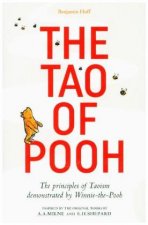
Tao of Pooh
43.19 zł -15 % -

Hagakure - The Way of the Samurai
77.36 zł -

Hagakure
57.02 zł -5 % -

Dancing Wu Li Masters
77.16 zł -5 % -

Meditations
56.22 zł -23 % -

Book of Five Rings
70.04 zł -23 % -

Light on Pranayama
60.82 zł -23 % -

Little Book of Ikigai
48.70 zł -14 % -

Kamasutra
40.68 zł -28 % -

Analects
47.09 zł -23 % -
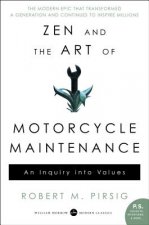
Zen and the Art of Motorcycle Maintenance
93.10 zł -5 % -

Art of War
40.28 zł -23 % -

Hyperobjects
124.37 zł -9 % -
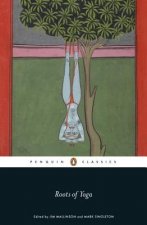
Roots of Yoga
60.82 zł -23 % -

Art of War
124.87 zł -4 % -

Psychotherapy East and West
73.05 zł -4 % -
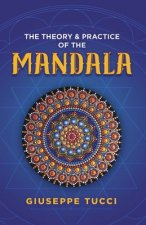
Theory and Practice of the Mandala
45.29 zł -4 % -

Be As You Are
51.60 zł -23 % -

Lost Writings of Wu Hsin
98.41 zł -

Lightning and the Sun
247.64 zł -

Moving Inward: The Journey to Meditation
63.03 zł -4 % -

Notes on Spiritual Discourses of Shri Atmananda
66.74 zł -

Elixir of the Gnostics
191.91 zł -
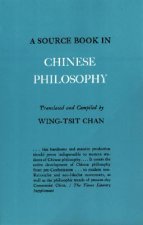
Source Book in Chinese Philosophy
239.62 zł -

Twenty Precepts of Gichin Funakoshi
43.89 zł -4 % -

Wish-Fulfilling Jewel
73.55 zł -1 % -

Oxford Handbook of World Philosophy
350.77 zł -
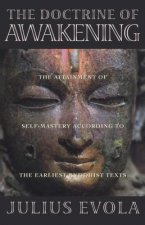
Doctrine of the Awakening
80.97 zł -4 % -
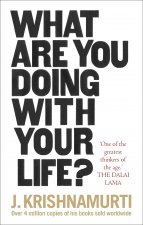
What Are You Doing With Your Life?
60.93 zł -15 % -

Total Freedom
85.18 zł -5 % -

Light on Yoga
92.70 zł -23 % -

Code of the Samurai
65.03 zł -5 % -

Heart of Awareness
88.29 zł -11 % -

Yoga Sutras of Patanjali
35.87 zł -23 % -
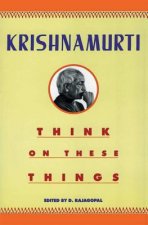
Think on These Things
73.05 zł -5 % -

Zhuangzi: The Complete Writings
162.25 zł -10 % -

Heart
64.53 zł -

Kali Puja
112.74 zł -

Tree of Yoga
47.09 zł -23 % -
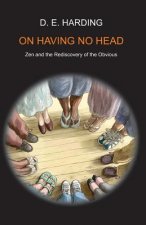
On Having No Head
80.77 zł -

Bringing Yoga to Life
73.25 zł -5 % -

Kundalini and the Chakras
77.16 zł -5 %
zadowolonych klientów
Od roku 2008 obsłużyliśmy wielu miłośników książek, ale dla nas każdy był tym wyjątkowym.
Copyright! ©2008-24 libristo.pl Wszelkie prawa zastrzeżonePrywatnieCookies



 21 milionów książek
21 milionów książek Dostawa 10.99 zł
Dostawa 10.99 zł (32) 444 93 66 (8-15.30h)
(32) 444 93 66 (8-15.30h)